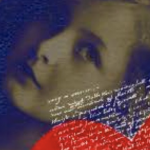
CALL FOR PAPERS
International Journal of Transpersonal Studies
Jung and Transpersonal Psychology
You are invited to submit a paper for consideration to be included in a special issue of the International Journal of Transpersonal Studies (IJTS) on the topic of Jung and Transpersonal Psychology. Topics may include Jung’s influences on the field of Transpersonal psychology, similarities or differences between the schools of thought, or how the transpersonal movement has influenced modern post-Jungian thought. This exploration will help to define the historical perspectives and current state of these respective approaches to psycho-spiritual topics. The deadline for submission is November 1, 2015.
This special issue will appear in an upcoming issue of IJTS, a double-blind peer-reviewed journal in print for over 30 years, currently with more than 60,000 unique visitors per year (http://www.
The paper you write should be targeted at a broad professional audience, so that it summarizes its topic clearly and draws on a range of transpersonal and other scholarly literature; the citation level should be relatively high, with the understanding that for some transpersonally-oriented subject areas, only minimal literature exists. In most cases, an explicit connection to thetranspersonal field should be made within the paper.
All manuscripts should be written in English and prepared in accordance with the guidelines of the 6th edition of the Publication Manual of the American Psychological Association. Submission should be made electronically in a Microsoft Word® document to the following address jkaminker@jfku.edu<mailto:jkam
With your submission, please include three to five suggested reviewers for the paper (with their affiliation and contact information), institutional affiliation (for each author), an abstract (up to 120 words), five to 12 keywords, a biographical statement for each author (up to 150 words), and an e-mail address for author communication. Manuscripts typically should not exceed 10,000 words (including text, references, notes, etc.), though IJTS has published considerably longer papers substance warranted additional length.
Manuscripts submitted to IJTS must be original, neither previously published nor under consideration for publication elsewhere, and must not infringe on the copyright or any other proprietary right of any other party. Contributing authors are solely responsible for obtaining written permission, where appropriate, to reprint copywritten material. Submission of a manuscript irrevocably grants explicit permission by the author for it to be published in IJTS and acknowledgment that he/she has the full right and power to authorize IJTS to publish it and, if it is accepted and published (either online and/or in print), to also authorize republishing it in any subsequent edited work (e.g., a book consisting of manuscripts previously published in IJTS). IJTS grants liberal non-exclusive rights to the author(s), so that authors may freely re-publish their paper without specific permission from the journal, provided that full citation to first publication in IJTS is made. If the manuscript is not published in IJTS, all aspects of the agreement made by submitting it shall become null and void; and all rights transferred by submitting the article shall revert to the author.
By submitting the manuscript to IJTS for publication, the author warrants and represents that he/she is the owner of all rights to the work, that the work is his/her original work, that the work contains no material that is defamatory, libelous, obscene, violates any right of privacy or is otherwise contrary to law, that the grant of rights herein have not heretofore been assigned or otherwise encumbered and are in all respects free and clear, ands that all statements in the submission are the responsibility of the author and do not necessarily represent the views of the Editor or staff of IJTS.




